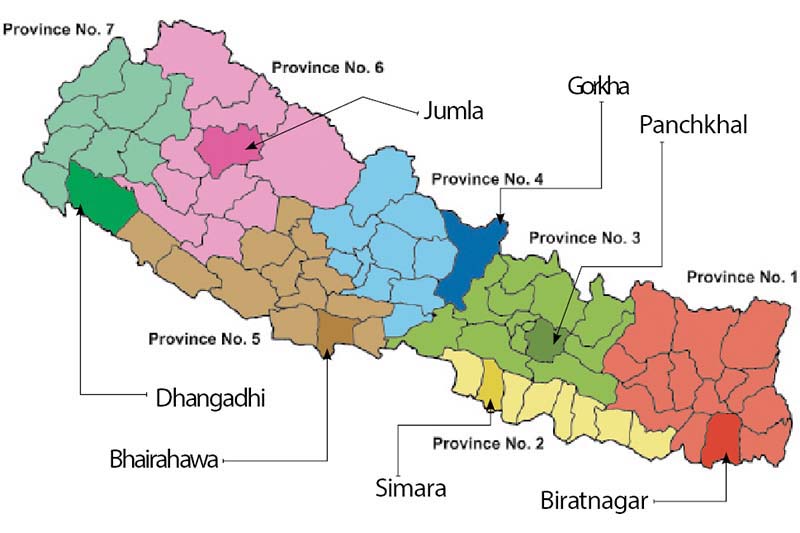Govt mulls opening Simara GPZ for other sectors
Kathmandu, June 9
The government is preparing to allow industries other than garments to invest inside the Garment Processing Zone (GPZ) in Simara after none of the garment manufacturers expressed interest to invest inside the GPZ.
Earlier in May, the Special Economic Zone (SEZ) Authority Nepal had called for applications from interested garment investors to invest inside the GPZ. However, not a single garment entrepreneur applied for investment inside the GPZ, thereby compelling the government to think of seeking investment inside the Simara GPZ from different other industries and investors.
“We constructed all the infrastructure facilities inside the GPZ in close consultation and coordination with garment entrepreneurs earlier.
However, they are now reluctant to invest inside the GPZ and have been seeking further reduction in the rental charges and also demanding free of cost operation of their factories for the initial couple of years,” informed Chandika Bhatta, executive director of SEZ Authority Nepal, adding that the authority will soon publish a second notice calling applications from garment entrepreneurs to invest inside the GPZ.
“If garment entrepreneurs do not express interest to invest inside GPZ even in the second call, we will open investment inside GPZ for other sectors as well,” said Bhatta.
As per him, the Garment Association Nepal (GAN) — the umbrella organisation representing domestic garment industry — has been discouraging garment entrepreneurs to invest inside the GPZ. “As infrastructure inside the GPZ is ready, we cannot allow the government’s investment to go to waste merely because garment entrepreneurs are unwilling to invest there.”
The government came up with the concept of GPZ after the United States extended zero tariff preference for 66 products, including apparels, into its market through the ‘Trade Facilitation and Trade Enforcement Act’ in February 2016. The GPZ is expected to bring down the production and export cost of garments in Nepal, which is relatively higher when compared with other nations in the South Asian region, as the GPZ offers basic infrastructure including internal road, electricity and water supply, sewage system, weighing bridge, waste water treatment plant, petrol pump, banks and insurance service, among other facilities.
The SEZ Authority has fixed rental fee of Rs 20 per square feet for investors to establish factories inside Simara GPZ and will provide necessary land to investors on lease for 30 years with the possibility of an extension.
Along with reducing the cost of production and exports, the GPZ is also expected to slash the high transport and shipment costs incurred by Nepali garment traders due to the country’s landlocked status, as the Simara Garment Processing Zone is located near the country’s only rail-linked dry port in Birgunj.
Meanwhile, garment entrepreneurs said they were informed late regarding completion of necessary infrastructure inside the GPZ in Simara.
“The government should review the rental fee as it is higher compared to what neighbouring governments have been levying inside such protected areas. Once the rental fee is reviewed and availability of other infrastructure is assured, we will start investing inside the GPZ,” said Chandi Aryal, president of GAN.






